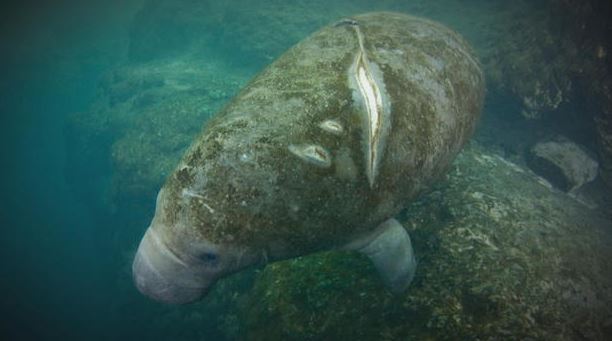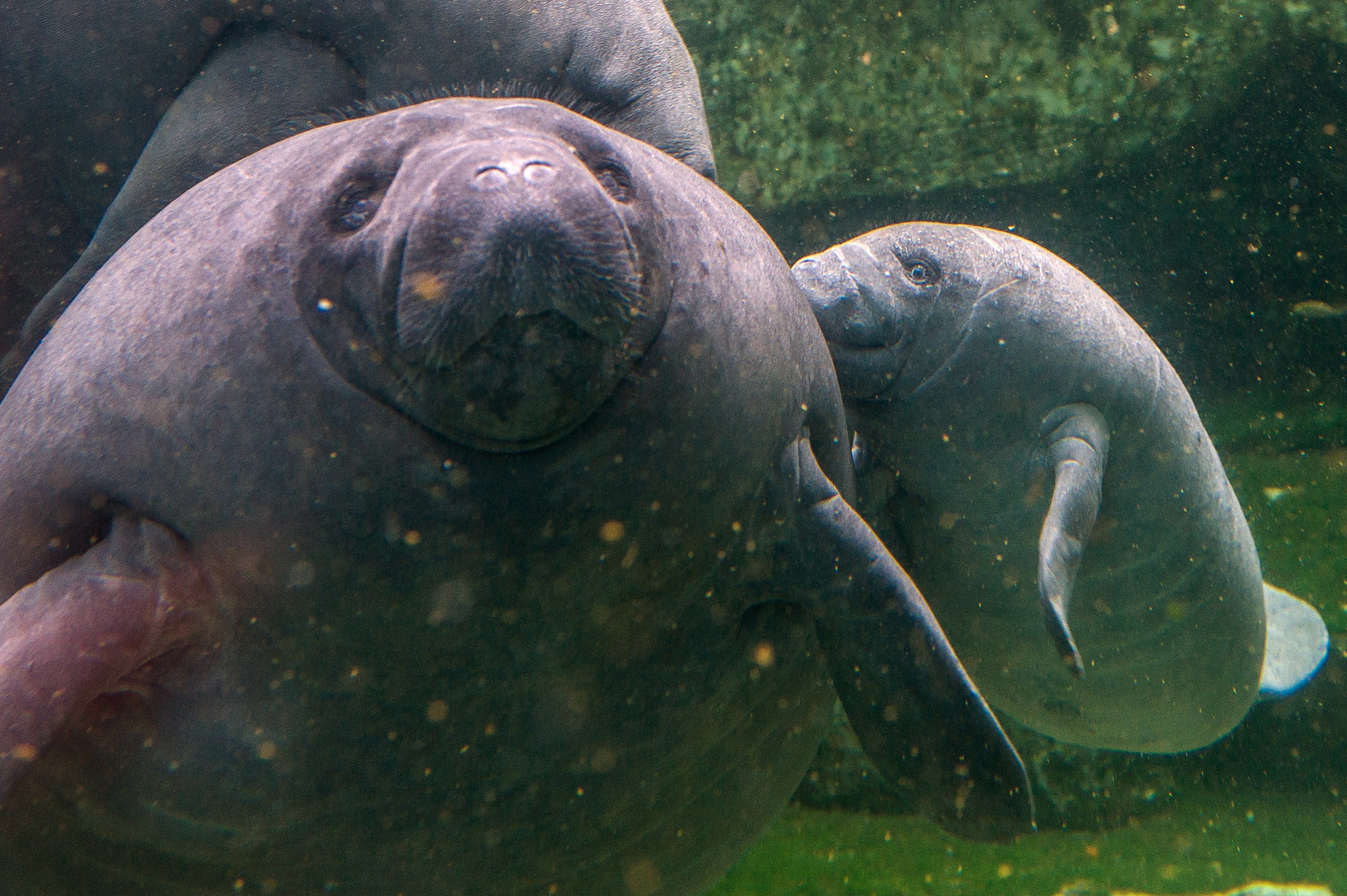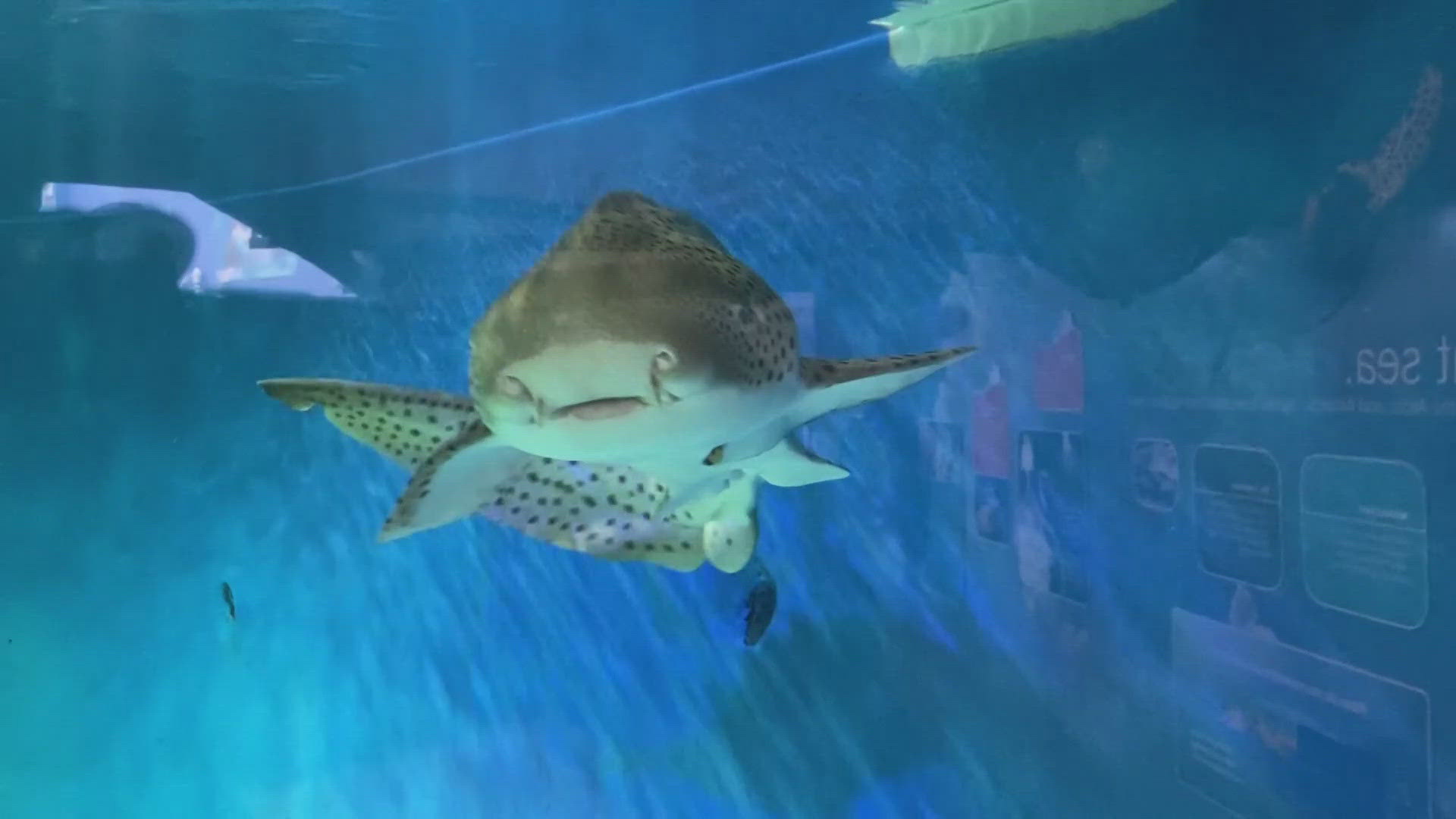The Florida manatee, a state symbol once on the verge of extinction, has made a big comeback. Manatees were recently reclassified from endangered to a threatened species.
Tampa’s Lowry Park Zoo is one of three acute-care facilities for manatees in Florida where vets heal them, and in some cases just try to save their lives. Now, after decades of bringing the manatee population back to life, the issue is whether they still deserve to be treated as endangered, CBS News correspondent Mark Strassmann reports.
Some worry the enormous mammals will lose special protections they need to save them from their number one threat -- people.
Florida manatees are gentle giants -- they’re about 10 to 12 feet long, average 1,300 pounds and graze slowly on plants in shallow waters along the state’s coast.
Mike Dunn helped Strassmann find a handful of them. They swim right behind his house in Crystal River, Florida, where his charter boat takes out tourists.
“I really do care about them. They’re a great gentle creature. They remind me of the Volkswagen in the early 60’s. A Volkswagen was really ugly but I fell in love with it. Manatees are the same thing,” Dunn said.
But in Florida, fast boaters repeatedly mow down manatees. Propellers gash, gouge and maim hundreds of them a year. Larger boats can even cut them in half.

Ray Ball is the senior veterinarian at Tampa’s Lowry Park Zoo, which treats wounded manatees and last year set a record.
“We admitted 37 manatees. The majority of those were due to boat strike. Sometimes the injuries are actually quite catastrophic,” Ball said.
In 1967, Florida manatees were listed by the federal government as an endangered species. At that time, roughly 600 were alive.
Since then, their population has spiked to about 6,600 -- enough progress that last month, they were reclassified as “threatened” instead of “endangered.”
Pat Rose, an aquatic biologist and executive director of the non-profit Save the Manatee Club, is not celebrating the reclassification.
“It can hurt if it’s not scientifically and also legally justified, so then you start to pull back protections which they say they’re not going to do but we know there are user groups that want the laws reduced and they want to be able to run their boats faster,” Rose said.
Rose also said that more money often goes to endangered species than to threatened species.
As the manatee herd here has grown over the last four decades, Florida’s human population has also boomed.
Dunn is on the water nearly every day protecting manatees from his other neighbors - the ones in boats.
“I have no problem shouting at somebody,” Dunn said of boaters he deems going too fast.
“What we try to tell and educate people is if you hit a manatee, please call it in. We may be able to go find him and save him,” Dunn said.
Experts estimate 80 percent of manatees here have been hit by a boat at least once - most repeatedly - and they have the scars to prove it.


